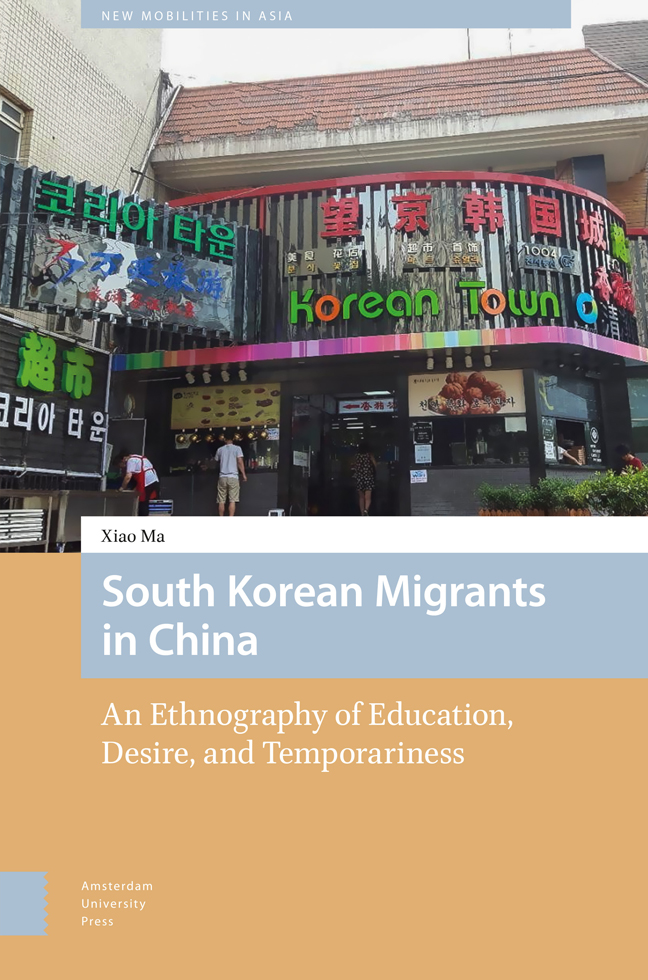Book contents
- Frontmatter
- Contents
- List of Illustrations
- Acknowledgements
- 1 Introduction
- 2 Temporary Residents’ Community in Beijing
- 3 The Internationalised Education of China and the Globalised Education of South Korea
- 4 Educational Desire in School Choice: Identities of Home, Destination and the World
- 5 Desirable Homecoming: The Pursuit of Tertiary Education in the Context of Temporary Migration Regimes
- 6 Internationalisation in Chinese Education: The Quest for Entry to a Top Chinese University
- 7 Conclusion
- Index
7 - Conclusion
Published online by Cambridge University Press: 26 March 2024
- Frontmatter
- Contents
- List of Illustrations
- Acknowledgements
- 1 Introduction
- 2 Temporary Residents’ Community in Beijing
- 3 The Internationalised Education of China and the Globalised Education of South Korea
- 4 Educational Desire in School Choice: Identities of Home, Destination and the World
- 5 Desirable Homecoming: The Pursuit of Tertiary Education in the Context of Temporary Migration Regimes
- 6 Internationalisation in Chinese Education: The Quest for Entry to a Top Chinese University
- 7 Conclusion
- Index
Summary
Abstract
This chapter addresses the four main findings of this book. First and foremost, Koreans in China are identified as the people ‘in between’, who have multifaceted statuses and positionalities that are flexibly exercised in a transnational context. They are liminal but not entirely in limbo. Second, I highlight the temporary state of South Koreans in China and the multiple reasons underlying this. The education-migration regime is regarded as the predominant drive of temporariness. Third, I view educational desire as a socio-political force through which to rethink people’s subjectivities as drivers of migration. Finally, I understand Chinese internationalisation as a politically charged process involving a variety of stakeholders that is often contradictory. All of these findings demonstrate that China is a temporary destination and not one for long-term settlement.
Keywords: The people in between, the art of being governed, Chinese internationalisation
The People In-Between
This book explores three Korean groups (migrant parents, children/students, and educational agents) and their migratory/educational choices, trajectories and strategies between two states, China and South Korea. Going beyond studies of immigrant education that predominantly focus on the younger generation’s education outcomes and their socio-cultural adaptation and integration into the mainstream schooling environment, my focus on migrant education demonstrates that the younger generation can be misaligned with the singular state-led schooling system. Transnational mobility enables them to be incorporated in divergent academic environments, in which they are able to make blended choices and plans, and further develop multifaceted identities. Integration into the mainstream educational system is by no means a necessity, instead, it is regarded as an undesirable obstacle in the pursuit of cosmopolitanism.
The topic of migrant education serves as a significant lens through which to look at migrants’ experiences, practices and perceptions, which have emerged and evolved in China as a rising destination for international migration. The first finding is that Korean migrants make multitudes of choices and adopt various trajectories and strategies in relation to their homeland, the host country and the wider world. These practices reveal that Koreans in China are transnationally positioned in heterogeneous ways.
- Type
- Chapter
- Information
- South Korean Migrants in ChinaAn Ethnography of Education, Desire, and Temporariness, pp. 177 - 188Publisher: Amsterdam University PressPrint publication year: 2024



